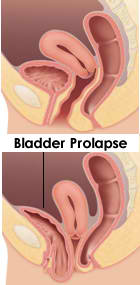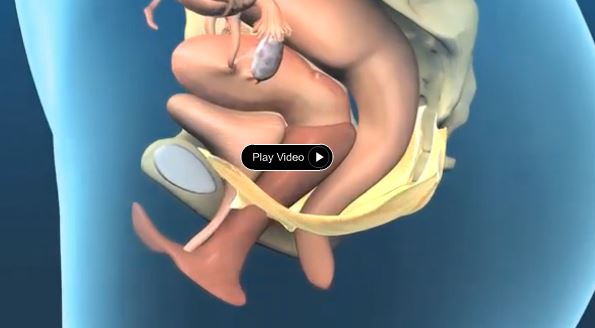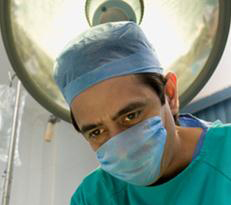 |
 |
|
|
The organs in your pelvic cavity—uterus, vagina, bladder and rectum—are held in place by a web of muscles and ligaments that act like a hammock. When these tissues become weakened or damaged (typically during childbirth, and/or after hysterectomy), one or more of the pelvic organs drop out of normal position and literally fall into the vagina, known as prolapse. As a result, the organs may press against the vaginal wall and produce a hernia-like bulge causing discomfort, limiting sexual and physical activity, or impair bladder or bowel function. As we live longer and remain active during these later years, studies show that about 11% of women will need treatment of their prolapse. The kind of treatment your doctor may suggest for you will be determined by the degree and type of prolapse you have. Mild prolapse will often respond to Kegel exercises. A non-surgical approach of using a Pessary (a plastic device worn in the vagina at all times) may a good solution for some women. Women who feel their condition compromises their quality of life may want to consider pelvic organ prolapse surgery to restore normal bladder, bowel, and sexual function. Prolapse repairs can be performed via a minimally invasive approach through the vagina. During the procedure, the surgeon repositions the prolapsed organs and secures them to surrounding tissues and ligaments. The vaginal opening, and the muscles that control it, can also be tightened for improved satisfaction during intercourse. |
Pelvic Organ Prolapse & Surgery
Transvaginal Prolapse Repair Restores Pelvic Organs & Function
| Utilizing newer minimally invasive techniques, surgery time is reduced, and most women experience less pain and more rapid return to regular activities. We perform the entire prolapse surgery utilizing incisions within the vagina. The goal is to eliminate the discomfort from the organs bulging into or out of the vagina by restoring (lifting) them to near their anatomically correct positions in the pelvis. This often improves bladder and bowel function. Women may enjoy intercourse after 6 weeks to allow for complete healing of the vaginal incision(s).
Most patients return home after an overnight stay, some on the same day. Hence we perform these operations on an outpatient basis. Women typically walk and eat the evening of their procedure. many women return to work and most activities within a few weeks. |










